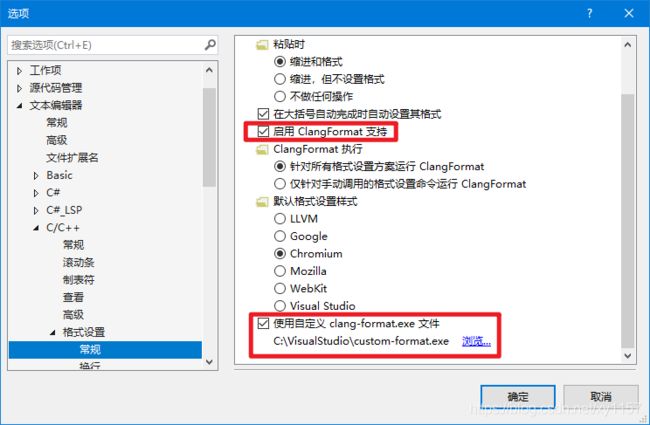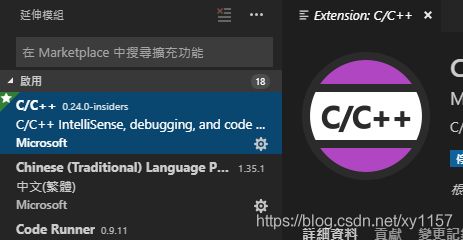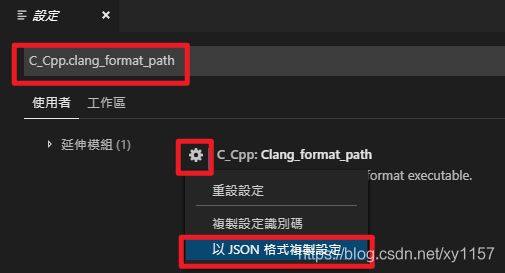Visual Studio和VS Code使用clang-format自定义C++代码默认格式化样式
1. 问题描述
Visual Studio的C++代码格式化可选使用clang-format, 但它只提供默认样式, 如果想使用自定义样式则需要在每个项目目录下放一个.clang-format或_clang-format文件, 没有对全部项目通用的可自定义样式
2. 目标
当项目目录没有.clang-format或_clang-format文件时, VS使用自定义的默认格式化样式, 而当项目目录存在.clang-format或_clang-format文件时则使用它们进行格式化
3. 解决方法
这里发现VS的格式设置中有一个使用自定义clang-format.exe文件选项
所以我尝试写了一个中转exe让VS使用, 并且将clang-format.exe放在了中转exe的同级目录
通过同级目录下clang-format.txt来设置自定义的默认样式, 具体设置参照clang-format官方文档
(当启用了这个中转exe时, VS自带的默认格式设置样式选项将无效, emmm都自定义了当然就不用它自带的啦)
以下是中转exe的源代码, 小白刚学C++, 还请大佬勿喷
#include 这里贴上我个人习惯使用的代码格式化样式(上面贴的代码就是用这个格式化出来的)
以下是clang-format.txt内容(key: value)
AccessModifierOffset: -4,
AlignEscapedNewlines: Left,
AllowShortFunctionsOnASingleLine: Inline,
ColumnLimit: 110,
IndentCaseLabels: true,
IndentWidth: 4,
KeepEmptyLinesAtTheStartOfBlocks: false,
PointerAlignment: Left,
SpaceAfterCStyleCast: true,
SpacesBeforeTrailingComments: 2,
TabWidth: 4
4. Visual Studio使用方法
emmm其实这步有点多余, 因为前面已经写过使用方法啦, 但这里还是再整理一下
- 随便找个地方把这三个文件塞进去, 比如我放在了
VisualStudio目录

- 启用ClangFormat支持并使用自定义clang-format.exe文件, 选择上一步的
custom-format.exe并确定

- 现在可以回到编辑器, 使用快捷键进行代码格式化啦


